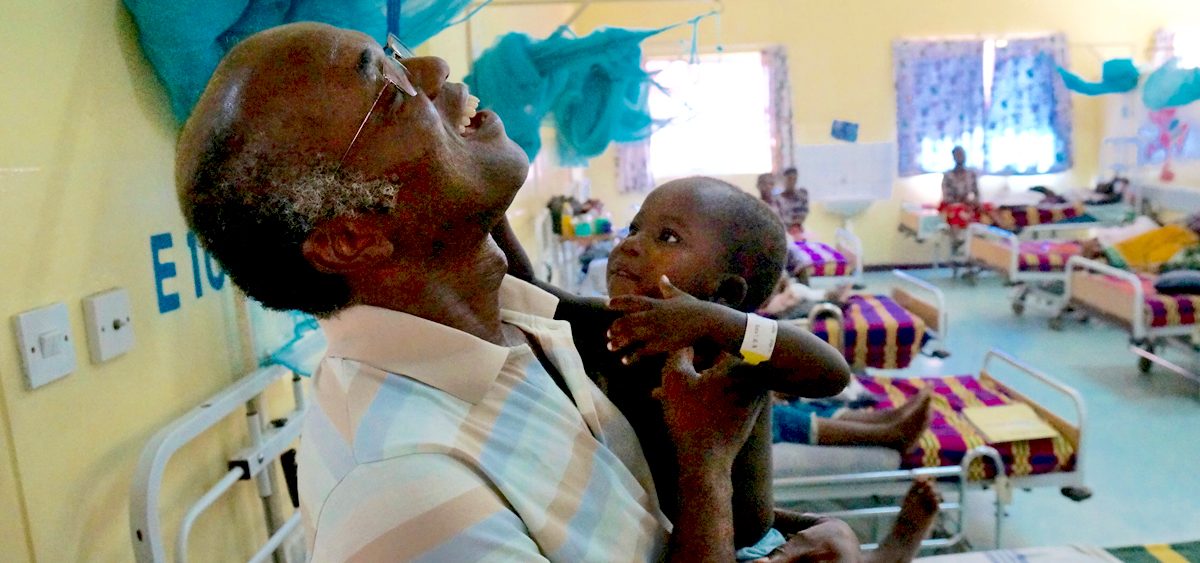Fresh hope for Ghana’s trauma patients
The AO Alliance Foundation (AOAF) is one step closer to making its plans for improving fracture and trauma care in Ghana a reality. In this West African developing country, many injured patients remain untreated, resulting in high levels of fatality and also in long-term or even permanent disability, contributing to the economic burden of 1.6% gross domestic product. Road traffic accidents in particular represent a tremendous burden for Ghana, with a fatality rate of 17%. The nation’s current surgeon-to-population ratio of 0.001 per 100,000 means that the country lacks the resources to be able to care for the injured.
With this in mind, on 24-26 February 2016, AOAF surgeon leaders and management hosted a delegation of government officials, teaching hospital directors and other influential healthcare workers in Elmina on Ghana’s south coast. Over 20 participants took part in the 3-day event that aimed to assess the state of the country’s present ability to provide care for trauma victims. Based on these findings, AOAF was able to draw up plans for a country initiative to boost and expand local care facilities and services.
Assessment and intervention
AOAF has previously held successful assessments of trauma care in Malawi and Ethiopia. In its work to build sustainable local capacity programmes to improve fracture care, post-traumatic deformities care and neglected fracture cases in selected low- and middle-income countries in Africa and Asia, the Foundation begins with a systematic evaluation of each new country. The assessment identifies key providers of fracture care and education in the country, looks at the major challenges in treating patients with fractures, and isolates the gaps in the process that are not being filled by the government or other agencies and partners. It also identifies possible allies in key partner organizations and personnel, considers what external support might be required for a successful country initiative by AOAF, and builds on any preceding work done by the former AO Socio Economic Committee or existing national contacts, if these apply.
The assessment in Elmina, led by Dr Wilfred Addo, the AOAF coordinator for English-speaking Africa, and an active trauma and orthopaedic surgeon in Accra, followed the same protocol. Elmina is the capital of the Komenda/Edina/Eguafo/Abirem Municipal district, one of 17 districts in Ghana’s Central Region. Situated on a south-facing bay on the Atlantic Ocean, west of Cape Coast and about 160 km from the capital, Accra, Elmina was the first European settlement in West Africa.
At the assessment event, delegates presented a range of indicators from which AOAF identified various avenues for intervention. These included, firstly, advocacy to prioritize the improvement of trauma care in Ghana. Secondly, all 10 of the nation’s regional hospitals would need to be upgraded to provide trauma and orthopaedic (T&O) services. Thirdly, three additional hospitals would require accreditation for training of T&O residents, meaning, fourthly, that capacity for the intake of residents would be doubled over the next 2 years. Finally, educational capacity would need to be expanded to support this increase in manpower.
Programme goals
Delegates highlighted five key goals that the AOAF’s 5-year programme would aim to achieve:
- Trauma care would be developed at all 10 regional hospitals
- Three T&O centres of excellence would be established
- 50 T&O surgeons would be trained
- 200 additional T&O nurses would be trained
- 1,000 first responders would be identified to attend to the injured
These goals, along with all information and notes gathered over the course of country assessment, have been collated by Dr Addo and Dr Jim Harrison, Regional Director for Africa. They developed the full country initiative proposal, which was then presented to the AOAF Board. AOAF hopes to start implementing the initiative in late 2016 or early 2017.
The successful implementation of this initiative would help relieve the pressure of trauma care on Ghana’s medical system, and offer hope to the victims of trauma and their families.
